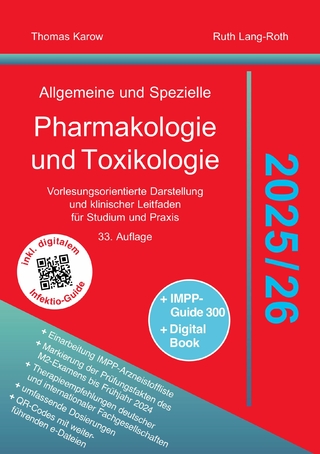
Handbook of Safety Pharmacology
Seiten
1999
Taylor & Francis Ltd (Verlag)
978-0-7484-0735-4 (ISBN)
Taylor & Francis Ltd (Verlag)
978-0-7484-0735-4 (ISBN)
- Titel wird leider nicht erscheinen
- Artikel merken
This text provides drug safety assessors with information on the currently used (or usable) techniques in safety pharmacology, on regulatory trends in Europe, USA and Japan, and on specific issues, such as the selection of screening schemes, and the implementation of good laboratory practice.
Safety pharmacology is a rapidly expanding field in preclinical drug safety assessment - as much there is little or no relevant literature on the market for the pharmaceutical industry. The subject has become increasingly important since it has become clear that: conventional toxicity testing cannot predict all adverse effects of pharmaceutical products; it is nearly impossible to evaluate the safety of a growing number of "innovative" pharmaceutical products using conventional methods (especially biotechnology-derived product); and mechanistic studies are more popular because they help understand observed effects in laboratory animals and help avoid unnecessary delay in the development of novel pharmaceutical products. The pharmaceutical industry is now becoming more concerned with establishing techniques and strategies in the areas. This text provides drug safety assessors (and/or toxicologists) with information on the currently used (or usable) techniques in safety pharmacology, on regulatory trends in Europe, USA and Japan, and on specific issues, such as the selection of screening schemes, and the implementation of good laboratory practice.
Safety pharmacology is a rapidly expanding field in preclinical drug safety assessment - as much there is little or no relevant literature on the market for the pharmaceutical industry. The subject has become increasingly important since it has become clear that: conventional toxicity testing cannot predict all adverse effects of pharmaceutical products; it is nearly impossible to evaluate the safety of a growing number of "innovative" pharmaceutical products using conventional methods (especially biotechnology-derived product); and mechanistic studies are more popular because they help understand observed effects in laboratory animals and help avoid unnecessary delay in the development of novel pharmaceutical products. The pharmaceutical industry is now becoming more concerned with establishing techniques and strategies in the areas. This text provides drug safety assessors (and/or toxicologists) with information on the currently used (or usable) techniques in safety pharmacology, on regulatory trends in Europe, USA and Japan, and on specific issues, such as the selection of screening schemes, and the implementation of good laboratory practice.
| Verlagsort | London |
|---|---|
| Sprache | englisch |
| Themenwelt | Medizin / Pharmazie ► Medizinische Fachgebiete ► Laboratoriumsmedizin |
| Studium ► 2. Studienabschnitt (Klinik) ► Pharmakologie / Toxikologie | |
| Technik | |
| ISBN-10 | 0-7484-0735-9 / 0748407359 |
| ISBN-13 | 978-0-7484-0735-4 / 9780748407354 |
| Zustand | Neuware |
| Haben Sie eine Frage zum Produkt? |
Mehr entdecken
aus dem Bereich
aus dem Bereich
Buch | Hardcover (2024)
Thomas Karow (Verlag)
CHF 79,95
Buch | Hardcover (2022)
Urban & Fischer in Elsevier (Verlag)
CHF 138,60


